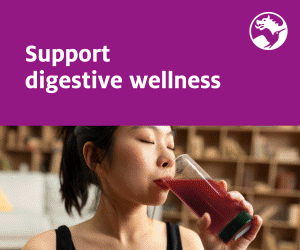The results show that across the globe consumers are becoming more conscious about their well-being — particularly immunity — as they question their vulnerability to disease and illness.
They are also concerned about the environment and whether the virus’ impact has been intensified because of increased levels of environmental damage.
As a result of these attitudinal shifts, consumers are looking to purchase food and drink products that increasingly promote well-being and sustain their energy in challenging times, whilst minimising impact on the environment.
Good for you and the environment
Environmental concerns have been heightened as a result of COVID-19. This is in part because of some consumers questioning whether issues such as air pollution have increased respiratory issues, making people more vulnerable to the disease.
This concern is being translated into altered buying patterns, with 60% of consumers now being more attentive to the impact that their food and drink has on the environment.
Increased focus on food and drink products that provide health benefits
Furthermore, the widespread effect of COVID-19 has also resulted in 64% of consumers saying that they are now more conscious about their immune health.
Even consumers who previously deemed themselves to have a good immune system are now questioning their vulnerability to disease and illness.
This is having a direct impact on purchasing behaviour, with two-thirds (64%) of consumers more interested in ingredients, or food and drink products, that provide protective or preventative health benefits. This trend is likely to continue being prevalent in the market for the foreseeable future.
Consumers want natural, sustained energy boosts
In these challenging times, consumers are also looking for ways to fight feelings of fatigue more naturally. In line with this, 34% of consumers say that they are now more likely to seek out food and drink products that boost energy in a sustained and balanced way.

Also, not surprisingly, consumers are looking to improve their mental well-being, with more than half (55%) saying they are likely to opt for food and drink to boost their mood. However, formulation is key, as consumers look to avoid ingredients deemed detrimental to their long-term health in pursuit of a short-term energy boost.
One opportunity arising from this is the appeal of slow-release, low-glycaemic carbohydrates such as Palatinose™ (isomaltulose), with 45% of consumers believing such carbohydrates are better for their health.
Michael Hughes, Director of Insights at FMCG Gurus, comments: “The results of our latest consumer survey clearly show that beneficial ingredients and label transparency are now more important than ever before to consumers across the globe, as a result of the pandemic."
"People are exploring topics such as inner defence, staying fit and healthy, blood glucose control, as well as sustained energy and wanting to buy products with proven health benefits. BENEO is well equipped to help manufacturers tap into these key growth areas."
"The company’s prebiotic chicory root fibres and slow-release carbohydrate offer a range of scientifically proven health benefits that help support long-term health and can be communicated on pack.”
Myriam Snaet, Head of Market Intelligence and Consumer Insights at BENEO, explains: “As concern for the environment continues to gather pace, it is important that we all play our part in promoting sustainable business practices. At BENEO, we actively support sustainable farming, to encourage biodiversity and reduce water pollution and soil erosion."
"We valorise 100% of our raw material to minimise waste and have reduced our specific energy consumption by 50% during the past 30 years. Looking to the future, we aim to achieve carbon neutrality by 2050, thanks to our recent investments into upgrading and expanding our facilities.”





